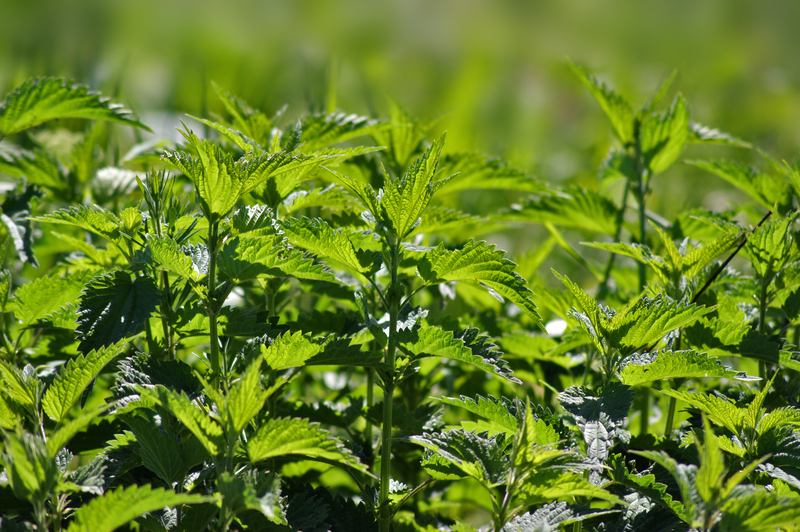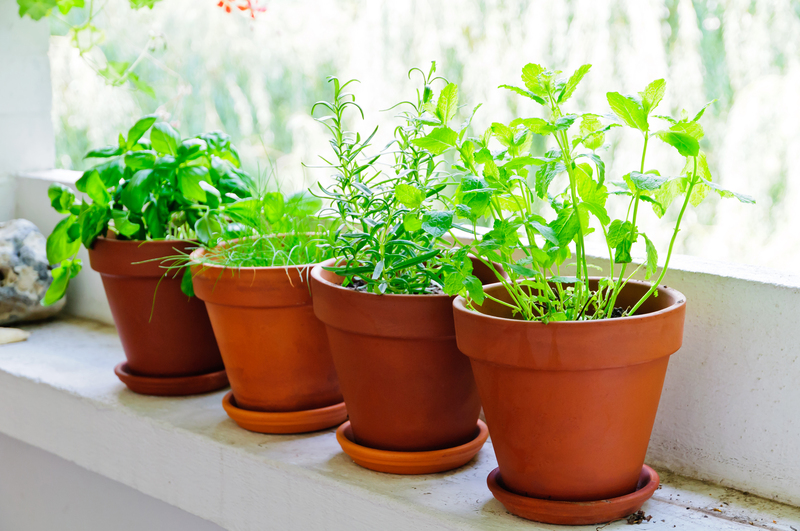10 Evergreen Trees That Bring Structure and Charm to Smaller Gardens
Evergreen trees are an essential component of any landscape. When it comes to smaller gardens, choosing compact evergreen trees can make all the difference by adding year-round interest, providing privacy, and enhancing the overall structure and charm of the space. In this comprehensive guide, we will explore 10 evergreen trees for small gardens that not only thrive in limited spaces but also create a timeless and attractive setting.
Why Evergreen Trees Are Perfect for Small Gardens
Evergreen trees offer visual appeal throughout the four seasons, maintaining their lush foliage when most deciduous trees have shed their leaves. In smaller landscapes, selecting the right kind of evergreen tree ensures lasting structure, privacy, and a consistent backdrop for seasonal flowers and shrubs.
- Year-round beauty: Provides garden interest even during winter months.
- Low maintenance: Require minimal pruning and are generally hardy.
- Screening and privacy: Great for blocking unsightly views or creating a secluded retreat.
- Structural elements: Their form can define pathways, entrances, or focal points within limited spaces.
If you're looking to add evergreen structure and lasting charm to your compact garden, consider these top ten tree options, loved for their unique qualities and adaptability.

1. Japanese Holly (Ilex crenata)
Japanese Holly ranks high among evergreen trees for small gardens due to its dense, glossy foliage and manageable growth. Resembling boxwoods, these trees are ideal for hedges, topiaries, or as standalone specimens. Their petite, dark-green leaves and compact size (rarely exceeding 10 feet) make them a favorite for urban and suburban gardens.
- Height and spread: 4-10 ft tall, 3-7 ft wide
- Growth habit: Upright, bushy
- Hardiness zones: 6-8
- Best for: Hedges, containers, structure
Key Care Tips
Plant in moist, well-drained soil and provide partial to full sun. Japanese Holly is low-maintenance and tolerates pruning into formal shapes for a classical look.
2. Dwarf Alberta Spruce (Picea glauca 'Conica')
With its perfectly conical shape and soft, dense needles, the Dwarf Alberta Spruce is a delightful accent in smaller landscapes. It grows slowly, maxing out at 6-8 feet over several decades, making it one of the best small evergreen trees for architectural structure and winter interest.
- Height and spread: 6-8 ft tall, 2-4 ft wide
- Growth habit: Dense, pyramidal
- Hardiness zones: 2-8
- Best for: Entryways, foundation plantings, containers
Expert Tip:
Spot it in a place with good air circulation to avoid fungal issues, and water regularly during hot spells for optimal health.
3. Bay Laurel (Laurus nobilis)
The Bay Laurel exudes Mediterranean elegance in any setting. Its leathery, aromatic leaves can be harvested for culinary use, making it both beautiful and practical. Bay Laurel is traditionally grown as a topiary, clipped to a lollipop shape, or left as a large shrub.
- Height and spread: 8-12 ft tall, 6-10 ft wide (pruned smaller)
- Growth habit: Multi-stemmed, upright
- Hardiness zones: 8-10 (can be container grown and brought indoors in colder zones)
- Best for: Herb gardens, containers, architectural accents
Growing and Maintenance Advice
To keep your bay laurel compact, prune in late spring, and provide well-drained soil in a sunny spot. Bay Laurel withstands some drought and responds well to shaping.
4. Yew (Taxus baccata)
No list of evergreen trees for small spaces would be complete without the versatile yew. Its dense, dark foliage and ability to thrive in sun or shade make it a staple in formal and informal gardens alike. Yew can be clipped into neat shapes or allowed to grow naturally for a softer effect.
- Height and spread: 4-20 ft, pruned to suit
- Growth habit: Dense, rounded or columnar
- Hardiness zones: 4-7
- Best for: Hedges, screens, foundation plants
Note:
Yews are toxic if ingested; plant cautiously if children or pets use your garden.
5. Dwarf Mugo Pine (Pinus mugo 'Pumilio')
For a tough, wind- and drought-resistant evergreen, look no further than the Dwarf Mugo Pine. Its irregular, rounded form and bright green needles suit rockeries, low borders, or Japanese-style gardens. Mugo pines are resilient and adapt easily to most soils.
- Height and spread: 3-5 ft tall, 6-10 ft wide
- Growth habit: Mounded, low-growing
- Hardiness zones: 2-7
- Best for: Slopes, rock gardens, mixed borders
Planting Advice
Place in full sun and avoid overwatering. Dwarf Mugo Pine benefits from occasional thinning of old needles to promote airflow.
6. Eastern Red Cedar (Juniperus virginiana)
Eastern Red Cedar is prized for its narrow, upright form, making it one of the best evergreen trees for privacy in small gardens. The fragrant, scale-like leaves, blue berries (attractive to birds), and rustic appeal are a welcome sight year-round.
- Height and spread: 10-20 ft tall, 4-8 ft wide
- Growth habit: Columnar, dense
- Hardiness zones: 2-9
- Best for: Screens, windbreaks, wildlife gardens
Pro Gardeners' Insight
Eastern Red Cedar thrives in poor soils and is highly drought tolerant--perfect for tough urban sites and wildlife-friendly gardens.
7. Holly (Ilex aquifolium and cultivars)
The traditional Christmas holly is an all-star for small gardens with its showy red berries and spiny, glossy leaves. Modern compact varieties, such as 'Little Rascal' or 'Blue Prince/Princess,' are ideal evergreen trees for compact spaces, offering festive flair and bird-friendly winter interest.
- Height and spread: 4-8 ft tall, 4-6 ft wide
- Growth habit: Bushy, upright
- Hardiness zones: 5-9
- Best for: Hedges, specimen shrubs, winter color
Expert Advice
Plant male and female plants nearby for the best berry production. Prune in late winter to maintain shape and encourage dense, healthy growth.
8. Portuguese Laurel (Prunus lusitanica)
If you need a lush, fast-growing evergreen that responds beautifully to shaping, Portuguese Laurel is a standout. Its glossy, dark-green leaves and red stems offer elegant contrast, and it doesn't grow as aggressively as some laurel species, making it manageable in tighter gardens.
- Height and spread: 12-20 ft tall, maintain at 6-8 ft for smaller gardens
- Growth habit: Dense, upright
- Hardiness zones: 7-9
- Best for: Hedging, screening, backdrop
Design Tip
Portuguese Laurel can be pruned into formal or informal shapes, so it adapts well to various design styles.
9. Camellia (Camellia japonica)
Who says evergreen trees can't be floral showstoppers? Camellia features elegant, deep green foliage year-round with spectacular blooms in late winter or spring. Compact cultivars ('Bob Hope', 'April Tryst') make charming evergreen focal points for smaller landscapes.
- Height and spread: 6-12 ft tall, prune to maintain size
- Growth habit: Upright, bushy
- Hardiness zones: 7-9
- Best for: Specimen plantings, containers, foundation accents
Growing Suggestions
Camellias prefer acid soil and part shade. Mulch annually and keep roots cool for best flowering and overall health.
10. Italian Cypress (Cupressus sempervirens)
Nothing adds architectural drama to a compact garden like slender, upright Italian Cypress. These iconic trees grow in striking vertical columns, instantly creating a Mediterranean essence and maximizing vertical space.
- Height and spread: 20-30 ft tall, 3-5 ft wide (can be pruned lower)
- Growth habit: Extremely narrow, columnar
- Hardiness zones: 7-10
- Best for: Focal points, entrances, avenue planting
Landscape Architect's Choice
Use Italian Cypress to frame doorways, mark garden boundaries, or accentuate sightlines. They require little pruning and can tolerate poor, dry soils.
Choosing the Right Evergreen for Your Garden Size & Style
Selecting the best evergreen trees for small gardens depends on several factors, including size restrictions, sunlight exposure, soil conditions, and the desired look. When making your selection, ask yourself these questions:
- What is the ultimate mature size of the tree?
- Is the tree's shape compatible with my garden style (e.g., formal vs. naturalistic)?
- How much maintenance and pruning am I willing to do?
- Will the tree provide additional benefits like privacy, wildlife habitat, or edible leaves?
Consider mixing several types of compact evergreen trees to add visual layers and interest, breaking up monotony and ensuring year-round color.
How to Plant and Care for Evergreen Trees in Small Gardens
Planting Steps
- Choose the right site: Ensure the mature tree will fit comfortably and receive the appropriate amount of light.
- Prepare the soil: Amend heavy clay or very sandy soils with organic matter to improve drainage and fertility.
- Plant carefully: Dig a hole twice as wide as the rootball, set the tree at the same depth it was grown, and backfill.
- Mulch and water: Apply a layer of organic mulch around the base, and water regularly until established.
Ongoing Care
- Prune gently to shape (late winter or early spring is best for most evergreens).
- Feed your trees annually with a slow-release, balanced fertilizer.
- Watch for common pests and diseases; treat promptly if noted.

FAQs About Evergreen Trees for Small Spaces
Are there fast-growing evergreens suitable for compact gardens?
Some evergreens, such as Portuguese Laurel and Eastern Red Cedar, grow relatively quickly but can be kept in check with regular pruning. For slow, manageable growth, try Dwarf Alberta Spruce or Japanese Holly.
What are the best evergreen trees for containers?
Many of these evergreens grow well in containers, especially Bay Laurel, Japanese Holly, Dwarf Alberta Spruce, and Camellia. Use a large, well-draining pot and feed regularly.
Can I use evergreen trees as privacy screens in a narrow space?
Yes! Columnar varieties such as Italian Cypress and certain Red Cedar or Yew cultivars are perfect for narrow screening.
Conclusion: Add Charm and Structure All Year with Compact Evergreens
Small gardens do not have to compromise on beauty or structure--incorporating evergreen trees for small gardens offers an enduring backbone, privacy, pops of color, and architectural drama. Whether you wish to create a secluded oasis, line a pathway, frame an entrance, or just add winter greenery to your yard, there's a perfect compact evergreen for you.
With careful selection, proper planting, and some regular care, these ten evergreen trees can transform any small garden into a charming, structured retreat that captivates in all seasons. Select your favorites and enjoy the perpetual joy and elegance that evergreens provide to compact outdoor spaces.